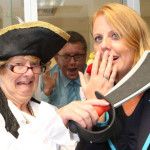Jonathan Dodd‘s latest column. Guest opinion articles do not necessarily reflect the views of the publication. Ed
There was a time in my early life when I was young and trying to find out who I was, in that painful adolescent process that we’ve all been through. It’s a bit like playing blind man’s bluff in the dark in an unfamiliar space. You stumble around, half-terrified and half-mad with excitement, and if something works you hang on to it with a vice-like grip. Far too often things don’t work though, and you’re liable to remember the shame for the rest of your life.
This certainly applies to self-imposed experimentation. We all remember the weird hair styles and unfortunate items of clothing, and the dubious social interactions that occurred at that time of our lives, and most of us don‘t think about it too much, only being reminded by photographs of weddings and parties. That mullet or those dungarees becoming part of family folklore.
The stuff of endless fascination
Sometimes, though, these things are out of our control, and it’s far too easy to blame them for so many of our problems. Things from the most unlikely sources can make huge impressions on young tender consciousnesses, for better or worse. Often everyone is affected by events that shape history. I sometimes wonder what my parents’ lives would have been like if the Second World War hadn’t intervened, and of course I wonder how that might have affected my own childhood and consequently how different a person I might be.
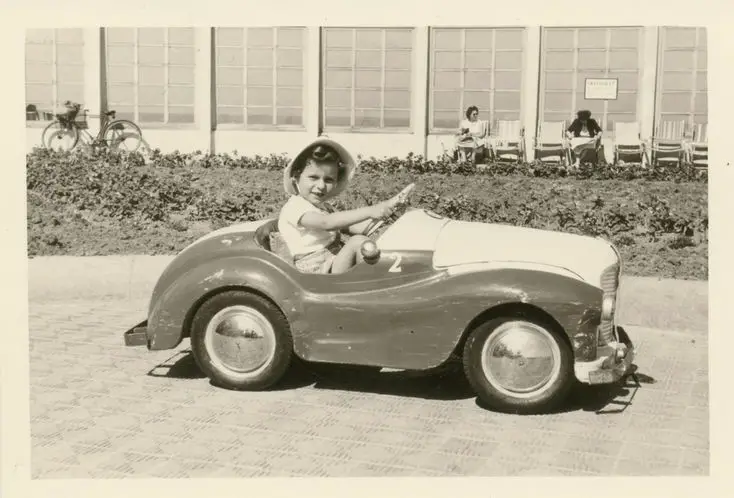
I know such thoughts are pointless, if you’re looking for answers, but they’re the stuff of endless fascination if you’re a writer or just like spinning webs with your imagination. Like many other things in your life though, you have to remember that it’s just a game. Too much brooding on the past and looking for things to blame for your current circumstances has never helped to improve things. From such stuff much sadness and madness are made.
The unfortunate popularity of Ken Dodd
In my own case I thought for some time that my life had been ruined by a simple question that came at me all the time, often unexpected and never welcome. ‘Any relative?’ people would say, and I would grind my teeth in anger and despair. I’m referring to what I always thought of as the unfortunate popularity of Ken Dodd.

If you’ve never heard of Ken Dodd, this will mean nothing to you, you lucky thing. He was a very popular comedian and singer. For a few years he was almost universally known, and he was the kind of performer who was either adored or reviled. For several years of my life I could never mention my name without someone asking the question – ‘Any relative?’ Every time they asked that I would think murderous thoughts. I just couldn’t help myself, and any relationship with that person would be immediately scuppered.
I did have a bit of a wobble
Luckily we all grow out of that extremely sensitive period, and after a lot of internal counselling I was able to get over it. I was helped in this by a relatively quiet period in Ken Dodd’s professional life. I did have a bit of a wobble when he unexpectedly popped up again, after being arrested for tax fraud. Apparently he had a hobby, which involved collecting cash, which he kept in suitcases in his attic. For some reason the tax authorities felt that this was unacceptable behaviour, but he hired a very good barrister who and got the case thrown out. Not the suitcase, obviously.

During this trying time the old routine resurfaced, and my tooth-grinding recommenced. ‘Any relative?’ would be invariably supplemented after I denied any connection, by – ‘Shame. You could have been rich!’ And eyebrows would be raised. But I was over it, and would walk away with only a residual shudder, and the hope that the trial would be over soon.
Because of competitive conversations at school
I have never met Ken Dodd, and I suspect he is blissfully unaware of me and my irrational youthful feelings towards him, and if I ever did meet him I would apologise. I suspect he would find it funny, and make a one-liner out of it.
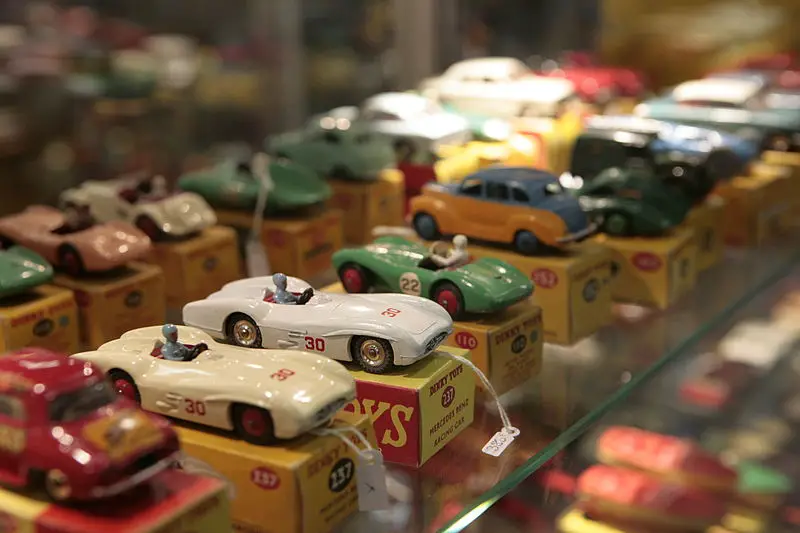
It’s interesting to me how we develop these likes and dislikes, and how they can affect our lives. They can be completely random. I’ve mentioned before that as a boy I was always a fan of Corgi Toy cars rather than Dinky Toys. The fact that I preferred them was only part of the story. It was mainly because of competitive conversations at school, where you had to agree or disagree, and sides were drawn up. I didn’t like the boy who said that Dinky Toys were best, so that sealed my fate.
I can listen to an Osmonds song
At least my Corgi Toy thing didn’t develop into a lifelong obsession, but I see plenty of people who demonstrate this specific thing. Football fans are intensely loyal to their teams. Sometimes they have a very good reason for this loyalty, and sometimes they can’t explain it at all. And it works in reverse, expressed as extreme hatred of anyone who disagrees with the random obsession.
 Luckily, I don’t think I still have any of these disproportionate feelings. People who know me might have a list though. As always, other opinions may apply. I can think of many things I used to position myself with or against that I now accept quite happily. I can listen to an Osmonds song without flying into a rage. I don’t despise people who wear ties unnecessarily (any moment that’s not during an interview or marriage or funeral). I can hear Cliff Richard singing (sometimes). I even own some Dinky Toys.
Luckily, I don’t think I still have any of these disproportionate feelings. People who know me might have a list though. As always, other opinions may apply. I can think of many things I used to position myself with or against that I now accept quite happily. I can listen to an Osmonds song without flying into a rage. I don’t despise people who wear ties unnecessarily (any moment that’s not during an interview or marriage or funeral). I can hear Cliff Richard singing (sometimes). I even own some Dinky Toys.
Things you like because you just do
I suppose that there’s a difference between things you like because you just do, and things you like because you were told to, or because it’s safer, or because someone you admire likes them. But I don’t think you need a reason if you just like something. If I like ice cream, it’s because I enjoy the taste and the experience. That’s all the reason I need.
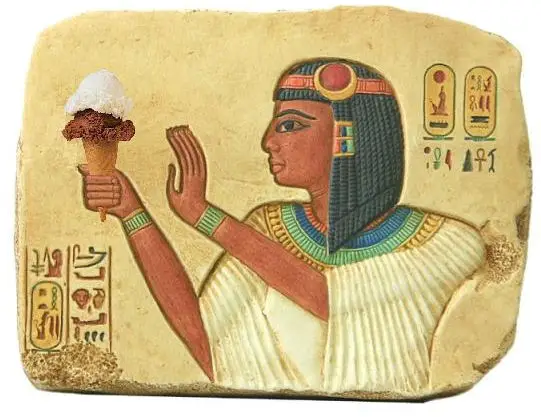
But if I don’t like foreign food, for instance, it’s too big a field to be true. I would have to try all kinds of foreign food and dislike them first, and presumably I would have to like every kind of English food. In this case I would probably be more accurate (and honest) if I admitted that my dislike is based on something else. Maybe I distrust anything that I don’t already know, or maybe I’m scared of change, or it’s possible that I haven’t yet escaped the thrall of some figure from my past who expressed hatred or disdain for things that were foreign.
An opportunity to explore new worlds
So maybe our likes and dislikes are a way for us to find out how well we know ourselves. Next time you say you like (or dislike) something, a simple ‘Why?’ might be revealing. And if the answer isn’t to your liking, that might become an opportunity to explore new worlds. To boldly go where you have not gone before.
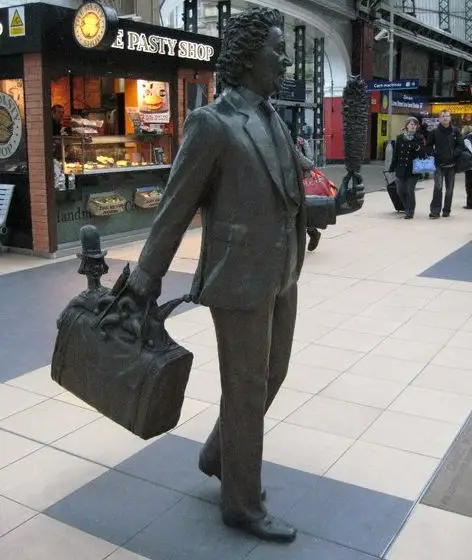
And yes, Ken Dodd’s not a relative. But I wouldn’t mind one of his suitcases.
If you have been, thank you for reading this. I’ve been tickled.
Image: Valarie Appersonunder CC BY 2.0
Image: jinterwas under CC BY 2.0
Image: David Ellis under CC BY 2.0
Image: ncauk under CC BY 2.0
Image: Retromobile under CC BY 2.0
Image: brizzlebornandbred under CC BY 2.0
Image: notionscapital/ under CC BY 2.0
Image: Philip Halling under CC BY 2.0



